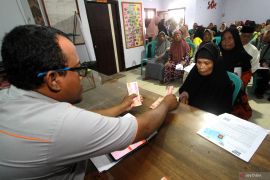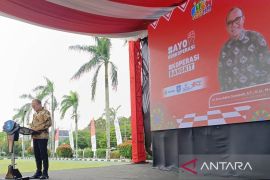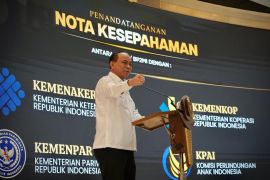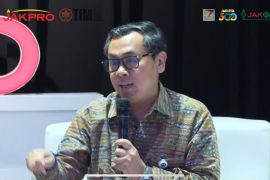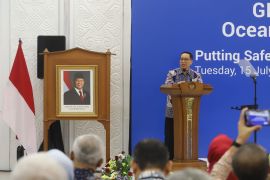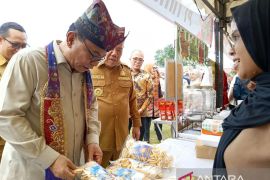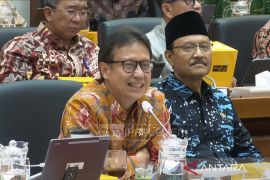"We should have experienced grand harvests beginning this February until next May. However, because of the late arrival of the rainy season, rice planting and harvesting were delayed by about 1.5 months. This has resulted in a longer period of rice scarcity," Khudori told a press conference here on Saturday.
He noted that as a result of rice scarcity caused by delayed harvest season, the price of the commodity has inevitably increased.
"What is regrettable is the governments slow action. It has not taken anticipatory steps to avoid price rise," he remarked.
Following monitoring, it was known that the volume of rice entering Jakartas Cipinang wholesale rice market was only 1,500 tons per day; the normal volume was 3,000 tons per day.
"The decline in the production is extraordinary. So, based the principle of supply and demand, the rice price automatically increases," he noted.
Furthermore, the governments statement on the replacement of the rice for poor (Raskin) program with an e-money scheme will also have an impact on rice prices.
"The Raskin program supports some 15.5 million poor people. If the program is no longer available, they will look for rice in markets. This will lead to an escalation in rice prices," Khudori noted.
Earlier, Herman Khaeron, the deputy chairman of Commission IV on agriculture affairs of the House of Representatives said the plan to drop the rice for poor (Raskin) program will affect rice price stability.
"Withdrawing the Raskin incentive will have negative impacts because rice is a sensitive commodity in Indonesia," he remarked.
Khaeron pointed out that in response to the governments statement on its plan to drop the Raskin program, businesses will withhold their rice stocks until Raskin rice, which is relatively cheaper, completely disappears from the market. Businesses will then release their stocks for higher prices.
Therefore, the legislator advised, the government should make public this policy matter because it will have implications on many sectors. And it will be the people who will mostly bear its effects.(*)
Editor: Heru Purwanto
Copyright © ANTARA 2015
